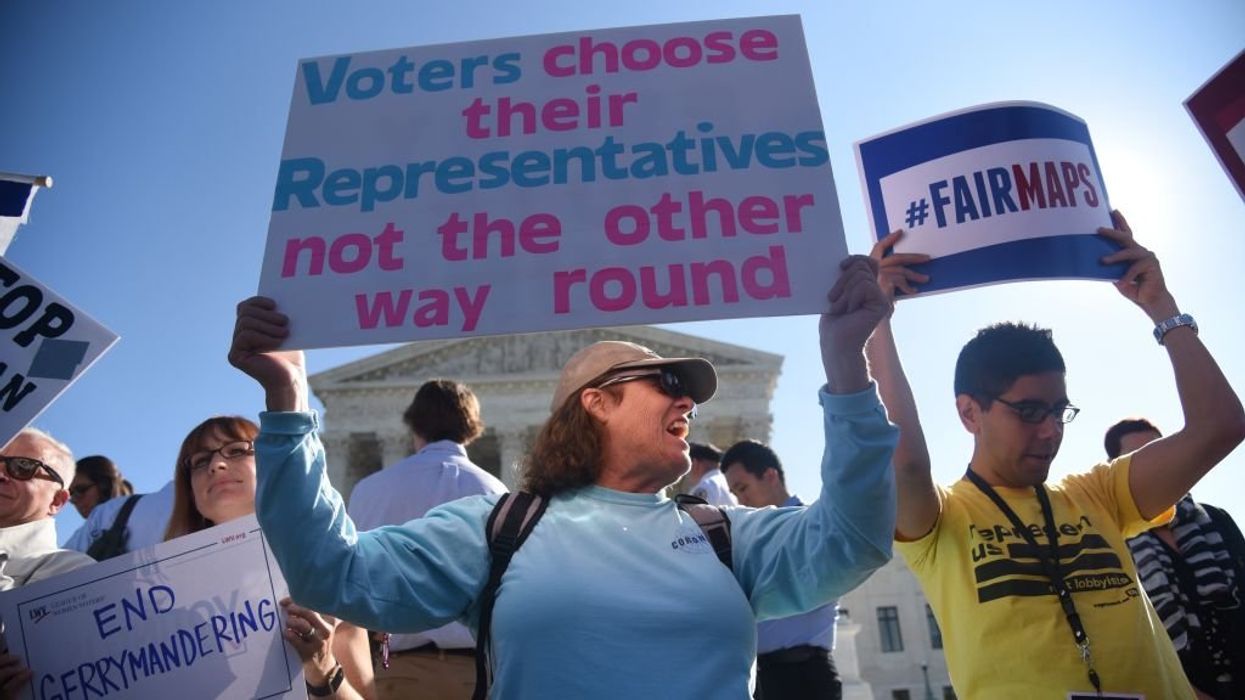The natural progress of things is for liberty to yield, and government to gain ground. ~ Thomas Jefferson, Letter to Col. Edward Carrington, Paris, 27 May 1788
The Problem We Face
The U.S. House of Representatives was designed as the chamber of Congress most directly tethered to the people. Article I of the Constitution mandates that seats be apportioned among the states according to population and that members face election every two years—design features meant to keep representatives responsive to shifting public sentiment. Unlike the Senate, which prioritizes state sovereignty and representation, the House translates raw population counts into political voice: each House district is to contain roughly the same number of residents, ensuring that every citizen’s vote carries comparable weight. In principle, then, the House serves as the nation’s demographic mirror, channeling the diverse preferences of the electorate into lawmaking and acting as a safeguard against unresponsive or oligarchic governance.
Nationally, the mismatch between the overall popular vote and the partisan split in House seats is small, with less than a 1% tilt. But state-level results tell a different story. Take Connecticut: Democrats hold all five seats despite Republicans winning over 40% of the statewide vote. In Oklahoma, the inverse occurs—Republicans control every seat even though Democrats consistently earn around 40% of the vote.
Texas has now officially redrawn its maps in a way that shifts it from one of the fairest states to one of the most distorted, giving Republicans nearly 80% of the seats while earning only about 59% of the vote. If California and other states follow suit, the result will be an escalating cycle of disenfranchisement, with each party trying to outdo the other in a political arms race. This arms race is not between us and a foreign power. It is against us, the American people. And it is American citizens' disenfranchisement as voters that will be collateral damage, impacting the entire legitimacy and accountability of the government to serve its citizens.
This is not about helping Democrats or Republicans. It is about ensuring that the voters should get the congressional voice they cast ballots for. When the rules are even, we can disagree passionately on policy and still trust the playing field to be fair.
Why the Courts Won’t Save Us
The Supreme Court’s Rucho decision (2019) said federal judges have no “clear, manageable standard” to stop partisan gerrymanders. Translation: if we want a standard, we have to write it ourselves.
Independent commissions, like those in Colorado and Michigan, work well when adopted. But most states still let politicians draw their own maps. A broader solution requires a national backstop that guarantees structural fairness.
Meanwhile, public trust is in crisis. Only 10% of Americans say they have confidence in Congress. And 67% view gerrymandering as a major problem. That collapse of legitimacy is corrosive to democracy itself.
So, what could states do to right the ship?
A Simple, Non-Partisan Fix
Here’s the proposal: a proportionality backstop for states with three or more congressional seats.
- Each party’s share of seats should roughly match its share of the statewide vote.
- A deviation greater than ±10 percentage points would be presumptively invalid unless needed to comply with the Voting Rights Act or respect communities of interest.
- For example, if a party wins 60% of the statewide two-party vote, it should expect between 55% and 65% of that state’s House seats.
That’s it. Simple, transparent, enforceable.
If a proposed map strays beyond that threshold, map-drawers must justify why no alternative could do better. Otherwise, the courts step in and order a redraw.
This rule would not eliminate partisan competition. It would ensure that competition happens on a level field where voters, not politicians, determine outcomes.
Using 2022 Federal Elections Commission data and election results, the map below gives a sense of how this proportionality rule might play out in different states.
There are two paths that can yield these results:
Path One: Federal Action. Congress should immediately pass a proportionality law. There has been recent discussion in Congress of doing something to end partisan gerrymandering. Speaker Mike Johnson (R-La.) has discussed this issue with Rep. Kevin Kiley (R-Calif.). Rep Kiley could lose his seat if California moves forward with its own redistricting.
Path Two: State Action. States can adopt proportionality rules on their own, with provisions that take effect only once enough other states join in. This approach removes the “unilateral disarmament” fear—no state would risk disadvantaging itself alone. It would instead create a path toward mutual fairness.
The key is political courage. Someone must go first. Until then, we are stuck in a dangerous cycle where each side justifies its abuses as retaliation for the other’s.
Why This Matters
At its core, this is about equal representation—the foundation of American democracy. Every community deserves its own authentic voice in Congress, not one distorted by cartographic gamesmanship. Americans agree; an August YouGov study on gerrymandering confirmed previous findings that large majorities of them believe partisan gerrymandering is a problem—in this study, 94%.
Adopting a fair-share rule would restore trust, reduce polarization, and remind citizens that their votes matter equally. In a time of deep division, we cannot afford to let redistricting drive us further apart.
Congress and state legislatures alike have the power and responsibility to act. Passing a proportionality rule will not solve every problem in our democracy, but it will remove one of the most corrosive: the sense that the game is rigged before the first ballot is cast.
Fair rules make for fair fights. Let’s put an end to the gerrymandering arms race and recommit to a simple promise: that the people’s House should reflect the people.
Jacob Bornstein is President of Mediators’ Foundation and a co-founder and Executive Director of Better Together America.
Kristina Becvar is Executive Director of the Bridge Alliance Education Fund and Co-Publisher of The Fulcrum.



















Trump & Hegseth gave Mark Kelly a huge 2028 gift